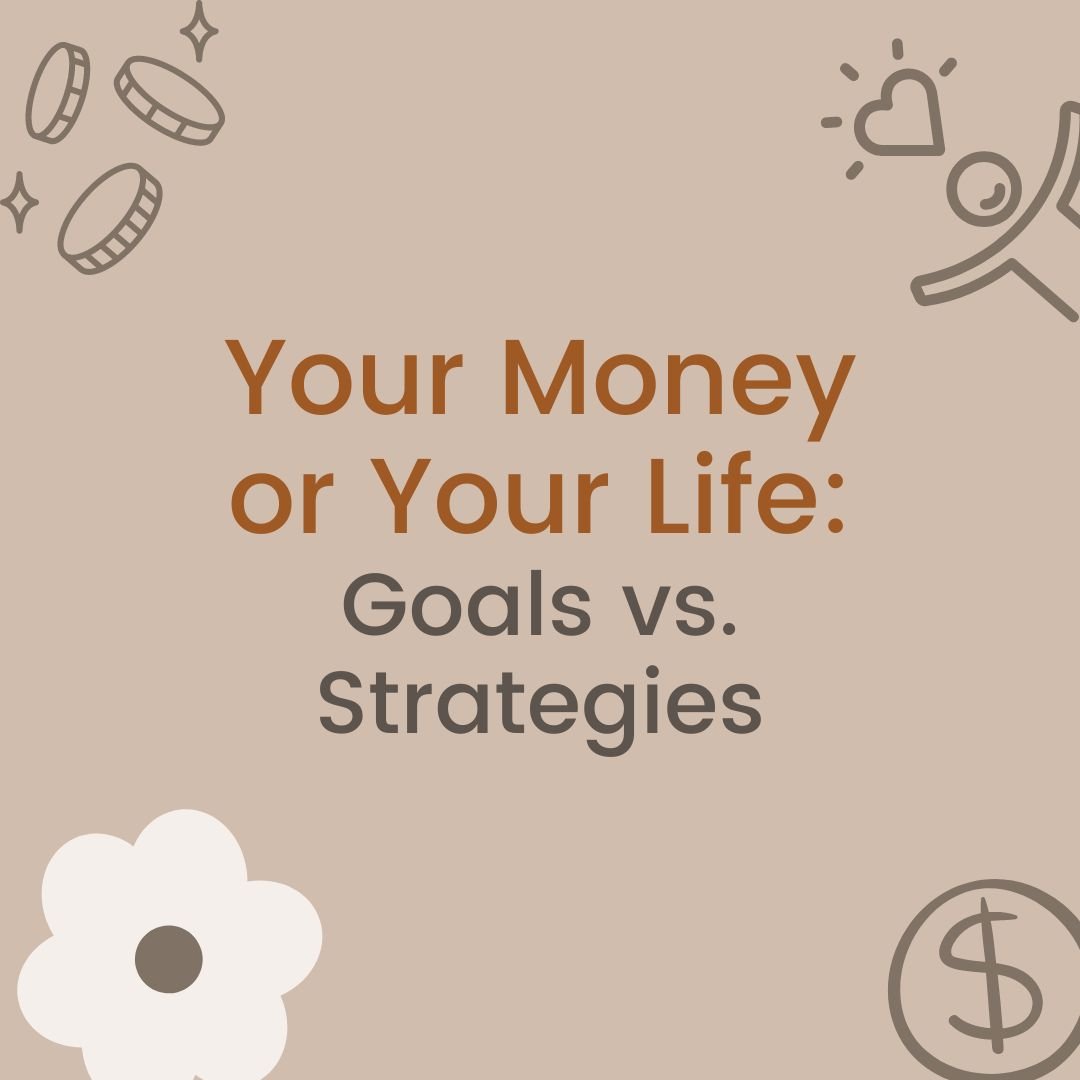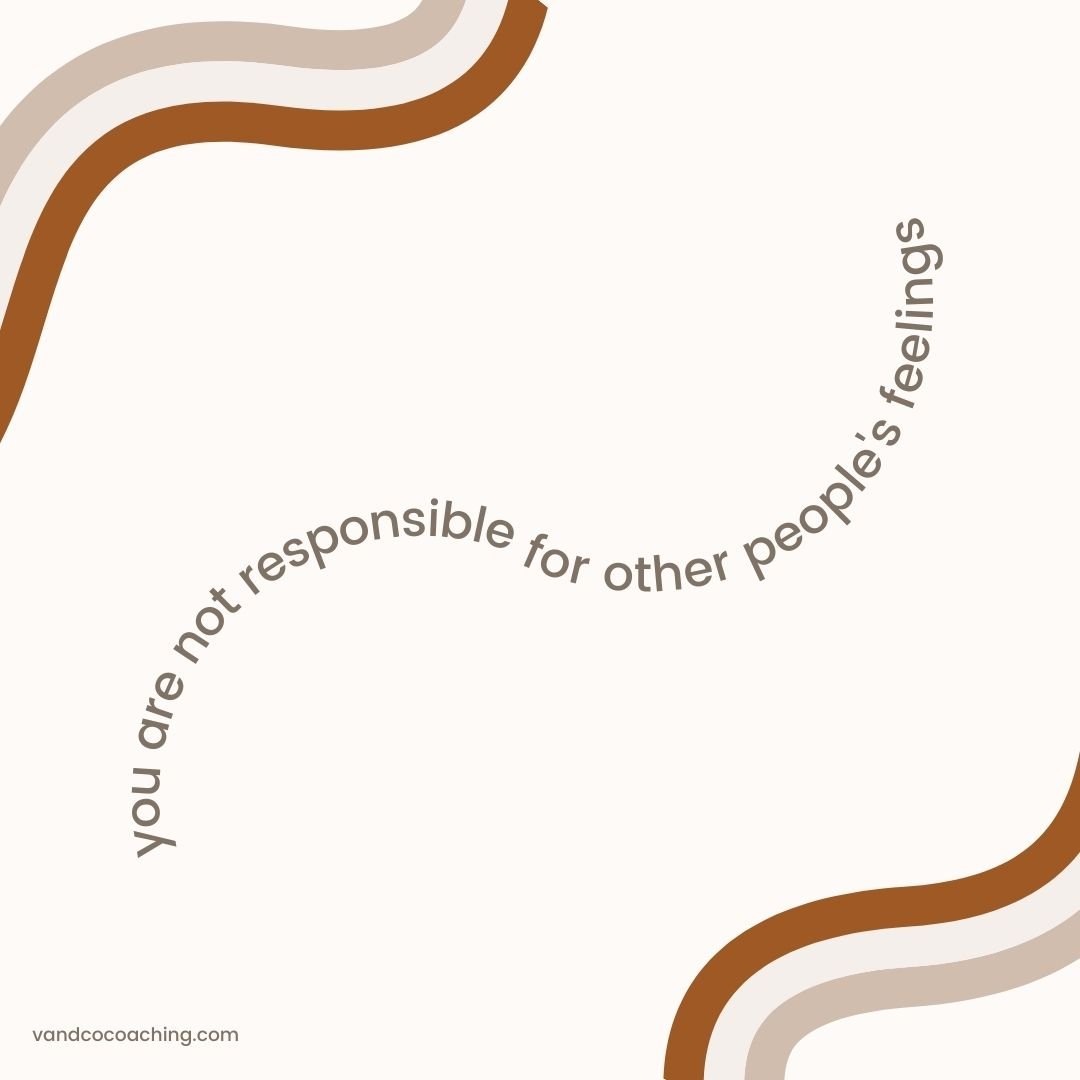Your Money or Your Life: Goals vs. Strategies
Ever found yourself questioning the path you're on or how you got there? For some, these questions can mean you’re a hop, skip, and a stone's throw away from an existential crisis. But it doesn’t have to be that way. In this post, I explore the topic of goals vs. strategies. How can we clarify our goals to steer our lives in the right direction, and what strategies can we use to get there. So, Goals vs. Strategies — let's parse it out.
Money or Life - Why Am I Really Here?
We can spend much of our lives making decisions without really understanding our goals, or evaluating the strategies to achieve them. I have come across this with a few clients. They particularly struggle with finding the why for what they’re doing. Take my client Alice for example. We had a recent discussion about her values around work:
Me: “What do you value about your work?”
Alice: “It's all about making money, right?"
Me: “What does money do for you?”
Alice: “It allows me freedom, and the ability to spend time with my family and friends.”
Me: "So, it sounds like your real goals are family and freedom. Money is just a means to achieve them."
Alice: “Well yes. I never thought about it that way.”
With a simple shift in perspective, a light bulb went off, ping. Her work wasn't just about making money—it was about living a life of freedom and quality time with loved ones. Now, she knows any job that doesn't align with those values isn't worth pursuing. Money is just a strategy; family is the real goal. Crisis averted!
The Concept - Don’t Mistake Your Strategy for a Goal
Goals and strategies: same same, right? Not quite. Goals are the big-picture dreams we aspire to, while strategies are the plans we use to achieve them. (For this article, I’m defining goals as synonymous with vision.) Here, we'll explore the difference and learn how to avoid the common pitfalls that can derail our journey.
Let Your Goals Lead the Way
When you're crystal clear on your goals, navigating life becomes a whole lot easier. But don't get too caught up in the strategies—they're just the means to an end. Take a page from the Fisherman Parable and start at the end.
Knowing your goals empowers you to utilize the strategy most relevant and helpful to you. We can reject a job that won’t give us time. We can embrace moving home if we want more community. Bottom line is, when we know what we want we have more ability to decide how to get there. There is flexibility and creativity in the strategy when we know the goal.
Goals and Strategies - Recognize the Pitfalls
Goal vs. Strategy. Easy enough. We know the definitions and where they differ and how they connect. Yet, we can still find ourselves bungled. So, let's shine a light on some common pitfalls:
PITFALL 1: Getting hung up on the "how" instead of the "why" of your goals.
Example: You make it a goal to lose 20 pounds because you’re overweight. Then you focus heavily on the numbers on your scale and constantly romp to the gym.
Reframe: Your real goal is to maintain a healthier lifestyle. Losing 20 pounds is part of your wider goal. Instead of focusing on the number, focus on how to eat healthy, fit exercise into your lifestyle, schedule regular health appointments, etc. Do not obsess over the number because you’re already working to achieve your goal.
PITFALL 2: Sticking to a strategy that's not working because you've lost sight of your actual goal.
Example: You're a business owner pouring money into marketing channels that aren't delivering results.
Reframe: Your real goal as a business owner is to run your business effectively. It may involve some experimentation and a lot of evaluation. Don’t get caught in the strategy without continuing to evaluate your main goal and the effectiveness of the pathways you’re choosing to get there.
PITFALL 3: Focusing too much on tactics instead of the broader goal.
Example: Cutting all discretionary spending instead of exploring other avenues for financial independence.
Reframe: Yes, cutting spending is a tactic towards financial independence but it’s not the only one. Focusing on this as a tactic has distracted you from other strategies that could help you achieve the same goals and allow a higher level of independence and possible yield. Instead, think of tactics more broadly, and leave room to try and experiment. You could consider investing, which leaves more room for discretionary spending because your money is growing.
Start With Asking Yourself Why, Then Do It Again….And Again…Again…
There are many immediate factors influencing the strategies we take towards achieving goals. One way to ground yourself in an effective strategy is to make sure you are chasing the right goal. It involves asking yourself “why.” In fact, you may need to ask yourself why 7 times.
The 7 Whys is a method of problem-solving and self-improvement, likely based on 5 Whys from the founder of Toyota. Sometimes it won’t take 7 whys, but it may take several before you truly understand your motivation behind a decision. For instance,
Why did you start a coaching business?
Because I wanted to support people with challenging but common work and life crises.
Why do you want to help people navigate their work and life?
Because I‘ve been through a lot of painful moments. It’s folly to pretend we can avoid these traps altogether, but I want people to be supported and feel less isolated as they learn and practice new tools, skills, and ways of being.
Why did you fall into those pitfalls?
For instance, while initially my work fell in line with my values, after time the sand shifted enough that I was no longer following my own north stars.
Why do you think it’s important for people to follow their internal guidance and trust themselves?
Practically speaking, doing it any other way doesn’t work, or at least not in any way that’s satisfying.
And so, I thought I wanted to get into this work to help people navigate their work and life, but what I found out is my motivations are tied to helping people listen to and trust themselves. Sometimes asking yourself why a few more times helps unearth the true motivation behind your decisions.
Make It Crystal Clear
“If you don’t know where you are going, you will probably end up somewhere else.” — Laurence J. Peter
Let’s not get lost along the road. Here are some steps you can take:
Start broad. Tie your desires back to universal human needs and/or core values
Double check. Consider the deathbed lens…”If I were on my deathbed would XYZ goal really matter; is it essential?”
Align strategies with goals: Every tactic should directly contribute to your overarching objectives.
Feedback Loop: Establish a feedback loop. Regularly assess the performance of your strategies and be willing to adjust based on the results.
Adaptability: Embrace adaptability as a core principle. Unexpected challenges may arise with your strategies, and being flexible allows you to pivot when necessary.
Conclusion - Know Where Your Are Going
“In order to get what you want, you have to know what you want.” —Yours Truly
Here we explored the importance of goals and strategies. You can’t know how to get somewhere if you don’t know where you are going. Taking the time to establish goals will help you better achieve them in life. Getting to the heart of goals is not so simple either. You need to deeply evaluate what motivates you, continue to self-reflect and ask yourself why. This is only the first step. Once you have your goals you need to strategize accordingly and not lose sight of what counts as a goal versus a strategy. While I can’t guarantee this is the cure to all life crises, I can say it’s a first step on a long road towards improvement.






















